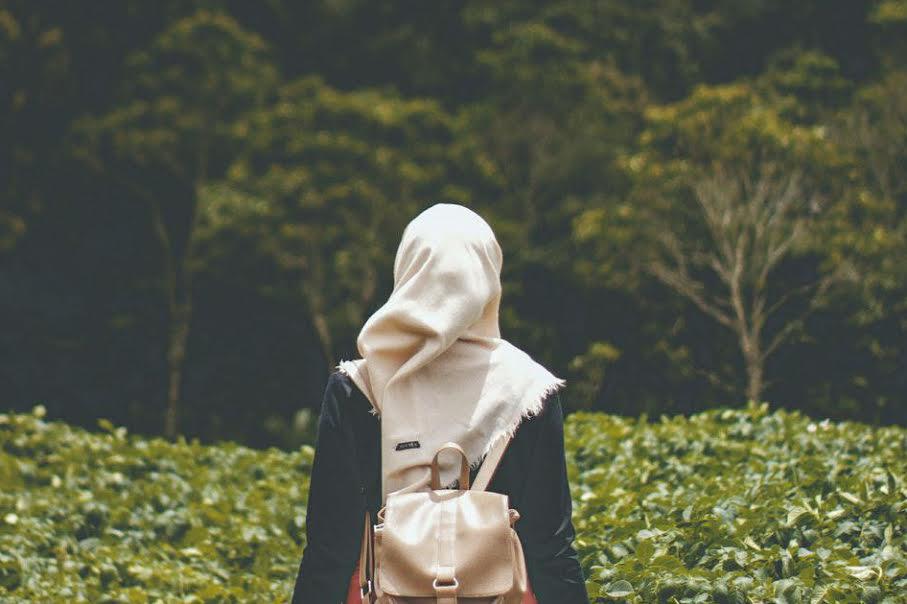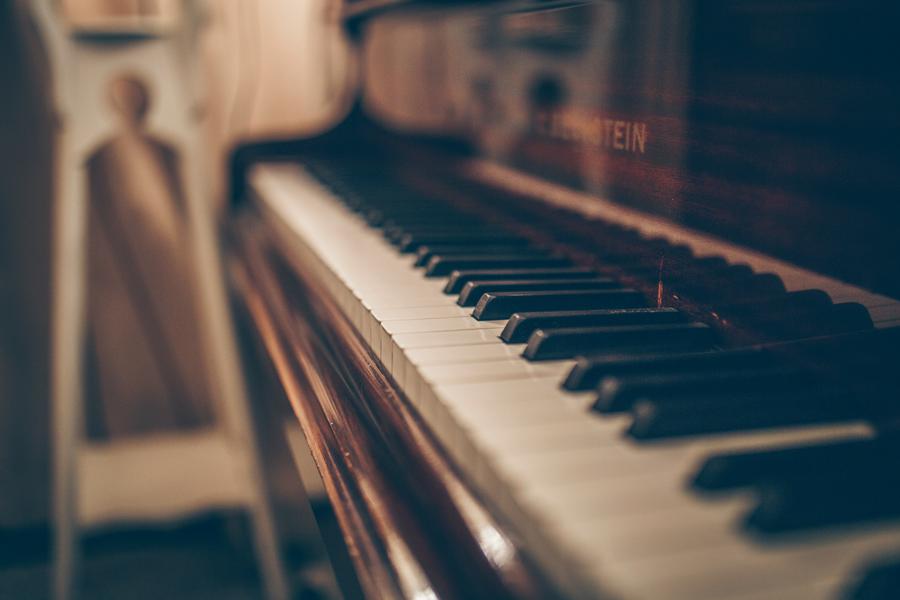
Julie Larah
June 8, 2018, 10:15 a.m.

The first time I started fasting for Ramadan, I wasn’t even Muslim yet.
But before we get to that, let’s talk about my anorexia.
Disclaimer: I am not here to speak for everyone with an eating disorder, nor all people with mental health issues. I am not here to extort a plethora of Islamic inspiration and pretend like recovery is so easy if you just strengthen your faith in Allah’s plan.
None of this is simple. None of this is easy. But it’s all deeply human, so let’s talk about it.
As far back as I can remember, my brain was full — full of thought, full of passion, full of creativity, and full of love for everyone around me. But also, my brain was full of worry, fear, obsession, self-loathing, and sadness.
I won’t go into my whole story, but sometimes, when emotions are too confusing and overwhelming to make sense of internally, and these same emotions are socially stigmatized When they are expressed outwardly… the pain needs to go somewhere.
As far back as I can remember, I had no belief in God. I felt no internal inclination to spirituality. So as a staunch atheist with no religious community or faith to seek support from, I used my pain as fuel to power my schoolwork, my artwork, my music, and my desire to help others. As a person who deeply feared rejection and becoming a “burden” to others, I also tried to relieve my pain with a variety of self-harm methods which, for a long time, I kept secret from everyone around me.
At least for me, anorexia was the ultimate extension of this desire to self-harm. I used self-harm as a method to feel “in control” of an emotional and social landscape which felt utterly overwhelming to me. But as I learned, anorexia is not some tool I could use to muffle the screaming inside me. Anorexia became a part of the screaming – and it was all consuming.
But most of all I think, after some time, anorexia can become something precious to a person with it. At least it did for me. This horrific companion became the only thing I held onto which maintained my illusion of self-control in a chaotic internal and external world. At least, it did… until it didn’t.
When I began my recovery, I was reluctant to give up what I had perceived as control. After over a decade of starving myself, I hit the proverbial rock bottom. I was truly sick and tired of being sick and tired. It was either die this way, or live another way. I chose the latter.
It began with open surrender. All those things which I feared, I needed to finally address. All the hidden thoughts and feelings and events needed to be brought into the open, and all the unbalanced internal processes needed to be externally stabilized. It started with therapy and medication in tandem, and I have continued to utilize these methods in varying degrees to this day.
My recovery journey has had its complexities, and I am by no means “cured”, but after 8 years working on my mental health and developing sustainable supports/coping skills, I can say pretty confidently that anorexia no longer runs my life at all.
Not many people with anorexia get to feel this way, and every day I must remember to thank God for this.
Oh yeah, remember how I said I grew up atheist? Well, I’m not an atheist any more.
A little over two years ago, I began another journey – understanding Islam. Being Muslim begins with Shahada, but it certainly doesn’t end there. Like recovery from anorexia, being Muslim is a process that needs to be worked on and enriched daily.
When I began my private study, I didn’t realize until 6 months into it that I would arrive at the cusp of my spiritual awakening right at the beginning of Ramadan.
Ramadan is not really about sacrifice through starvation. Ramadan is not solely about feeling the raw pains of hunger and thirst. Ramadan is about using a physical process to draw attention to one’s spiritual core. For the average Muslim, abstaining from food, drink, argument, sex, etc. empties the body of such fulfillment to make room for one to focus on their spiritual needs. For the average Muslim, giving up such “pleasures” during the day brings a hyper-focus to the fulfillment of other good deeds which serve to enrich their soul and connection to Allah.
But for me, it was not the long days of fasting that caused my awakening. It was after the sun went down and I was permitted to eat that directed my soul to Allah.
As someone with a history of anorexia, the challenge was not getting through each day of fasting, but rather, the challenge was to break my fast each night and truly nourish my body with an awareness of God. My natural inclination when my body feels the pangs of hunger is to continue it… with severity. This seemingly simple act of self-care in breaking fast during Ramadan is a profound act of worship for me. My first Ramadan not only confirmed for me that anorexia no longer controlled my life, but it enriched my mind/body connection and drew my soul to Allah.
Instead of self-harming through starvation, I was cultivating self-love as I observed Ramadan.
Five days into my first Ramadan, I spoke the Shahada and became Muslim.
It’s been nearly two years since then. I have learned much – not only about Islam, but about myself. But like recovery, being Muslim is a kind of journey. It takes time, effort, drive, and intention.
As I wax poetically about my own experience of relative wellness, there are many Muslims in the deepest throes of their eating disorders still. So while I may be able and willing to fast for Ramadan, there are many more who cannot and should not. The Quran actually forbids Muslims from doing anything to harm themselves unnecessarily, and this includes excessive acts of worship. For those with eating disorders, fasting may be self-harm, and therefore, is not Islamically beneficial.
Dear fellow Muslims with eating disorders,
You are not alone.
I know you feel completely isolated in this world, and truly in many ways you are.
But Allah knows your pain, and you are so loved.
You are no less Muslim for having difficulty fasting during Ramadan.
You are no less Muslim for not being able to fast at all during Ramadan.
You are no less Muslim for this struggle, and verily, Allah knows what’s in your heart.
While I wish that you would seek help for your eating disorder, I understand why it can be beyond daunting to even consider it.
So this Ramadan, regardless of if you fast with food, use this time to become more spiritually centered in whatever way you can – pray, recite Quran in whatever language you prefer, donate to causes you believe in, volunteer for those in need, read religious materials that inspire you, attend events with fellow Muslims that feel healthy to you.
Do what you can, when you can, how you can.
But most of all, know that in whatever way you observe Ramadan, you areMuslim. No one can take that away from you.
Author: Julie Larah
Facebook: https://www.facebook.com/Larah.Julie

May 22, 2024, 12:40 a.m.